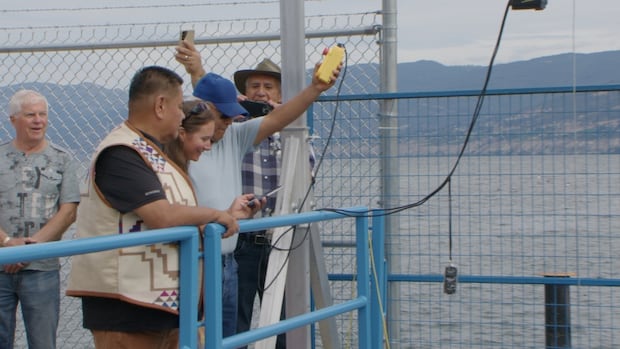Launched in 2024, Taxi Carapace is a transportation service for turtles — more specifically, injured turtles — that operates in Quebec.
The initiative is run by the Nature Conservancy of Canada and aims to maximize injured turtles’ chances of survival by having volunteers safely and quickly transport the reptiles to a specialized rehabilitation centre in Laval, Que.
With Quebec’s eight species of native freshwater turtles all designated as either endangered or vulnerable, the organization is now looking for more volunteer drivers.
Habitat destruction and degradation are contributing factors to the situation, and some species, like the wood turtle, are also threatened by poaching and illegal trade, according to Montreal’s Espace pour la vie.
But Francisco Retamal-Diaz, a project manager with Nature Conservancy of Canada, said “one of the most detrimental things for the population is road mortality.”
All in a Weekend12:07“Turtle Taxis” are needed in Quebec and you can volunteer
Turtles are coming out of hibernation and that means they could be in danger of getting hit by cars or boats. We find out how you can help injured turtles by becoming a Turtle Taxi or Taxi Carapace, thanks to a program from Nature Conservancy Canada. Go to Carapace.ca for more information.
Critical times of the year include the spring from late May to early June, when turtles start moving around after hibernation, then in July, when female turtles make their way to nesting sites, and then again around October, when they travel back to their hibernation sites.
Retamal-Diaz explained that turtles exhibit site fidelity, meaning they will return to the same summer habitat and nesting habitat, year after year.
“So pretty much everywhere in the world where there are turtles and there are humans, roads are being constructed and turtles will not adapt their movements and they will have to cross every year at the same spot,” he said, adding it’s a behaviour that can be passed on through the genes.
Death of 1 adult turtle can set population back decades
The turtles’ inability to adapt and move as quickly as other animals makes them especially vulnerable when crossing roads.
Because it can take time for turtles to reach reproductive maturity, from 10 to 20 years depending on the species, the death of even just one adult turtle in a road accident can set the population back 20 years, Retamal-Diaz said.
That’s where the need for volunteers comes into play.
“This is why we created the platform Nature Conservancy of Canada carapace.ca,” Retamal-Diaz said.
“Its purpose is to document road mortality and where there are turtles on the road, so we can prevent and plan mitigation measures such as fences or signs that are warning the drivers.”
Friday is World Turtle Day. It’s a yearly reminder to protect turtles and their disappearing natural habitats. Terre Chartrand is a land-based educator from Red Osier Guild, a Kitchener-based collective focused on environmental conservation and survival. Chartrand told CBC K-W’s Aastha Shetty about why turtles are important to parks and natural spaces in Waterloo region.
In addition to people reporting turtle sightings or ensuring they get across the road safely, volunteers are needed to transport turtles that are in distress to Éco-Nature’s Centre de réhabilitation des tortues du Québec in Laval.
Éco-Nature says it has been involved in turtle conservancy work for 20 years, with activities aimed at protecting, restoring and recreating turtle habitats.
50 volunteers, 3,600 kms
Sometimes, volunteers with Taxi Carapace will offer a shuttle service of sorts, with drivers handing over a turtle at a meet-up point.
With turtles found across southern Quebec, as far west as Abitibi and all the way to the Côte-Nord in the east, it can be a lot of ground to cover.
To date, Nature Conservancy of Canada says more than 50 volunteers have joined the taxi initiative, covering over 3,600 kilometres.
While veterinarians can help stabilize a turtle awaiting transport, the rehab centre provides specialized care, including turtle physiotherapy.
It’s important for injured turtles to build up their muscles before being released back into the wild, Retamal-Diaz said, otherwise they would be more vulnerable to predators.
Of the 93 turtles released in 2024, 32 were released by volunteers, according to Nature Conservancy of Canada.
It might seem like a lot of effort is going into saving the lives of a small reptile, but Retamal-Diaz underscored the critical role they play in maintaining ecosystem health.
He compared the turtle’s role to that of a janitor.
“Most turtles are a generalist. So they eat algae, they eat fish, they eat snails, they eat a lot of things. And so they contribute in maintaining healthy wetlands,” Retamal-Diaz said.
He added wetlands provide several benefits, including flood protection, water quality improvement and climate change mitigation.
More information on how to become a volunteer turtle taxi driver is available on the Carapace website.







